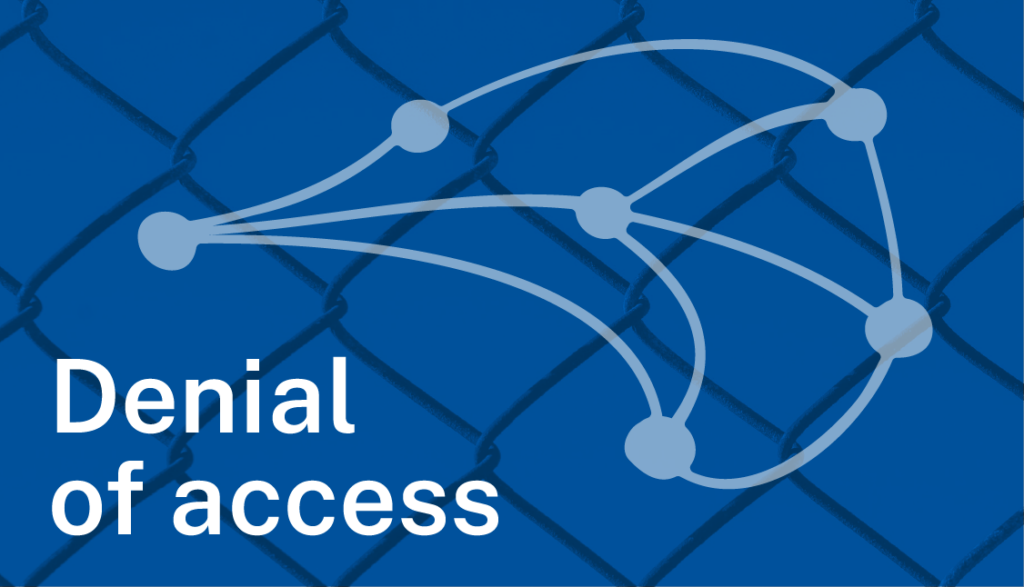RCMP delayed press entry to a protest site near Port Renfrew, B.C. on May 26, 2021, where media later learned that officers were arresting protesters.
The RCMP had asked journalists to meet officers in Port Renfrew, where enforcement was planned, at 9:30 a.m. on May 26, according to written submissions filed by media and press freedom organizations in B.C. Supreme Court, as part of a lawsuit challenging the RCMP’s treatment of journalists.
According to the written submission, the meeting time was later changed to 10:30 a.m., but police didn’t allow media workers at the meeting location to enter the protest site until more than an hour later, around noon.
During that time, RCMP officers were arresting protesters who had climbed trees inside the exclusion zone, according to the media affidavit.
In a separate affidavit, RCMP officer Dave Attfield said that media had been barred from the site because he believed it was necessary to prevent journalists from documenting the techniques that officers were using to arrest protesters in the treetops.
At the time, Attfield was the officer in charge of the Community-Industry Response Group, a specialized unit that polices protests related to natural resource extraction and which was involved in enforcement during the Fairy Creek protests.
In his affidavit, Attfield said he later learned that the RCMP did not believe there was a need to prevent media from filming or photographing the treetop arrest technique. He said he then told officers on the ground “to ensure that media access was not further limited due to this misunderstanding.”
In their written submission, media representatives suggested that it was possible other arrests had been hidden from media, using the same justification as the May 26, 2021 arrests.
This incident took place during protests against old-growth logging on southern Vancouver Island, on the territory of the Pacheedaht and Ditidaht First Nations, between Aug. 9, 2020 and Sept. 28, 2021.
Police enforcement, arrests, and most media coverage of the blockades took place after logging company Teal-Jones obtained an injunction from the B.C. Supreme Court on April 1, 2021, which banned blockades of logging activities in the Fairy Creek and Caycuse watersheds.
By Aug. 2021, the Fairy Creek blockades and protests were approaching the record for the largest act of civil disobedience in Canada’s history, reported The Narwhal.
Concerns over press freedoms arose during police enforcement in 2021 due to numerous incidents where media workers were denied access to raid sites, intimidated and arrested by the RCMP.
On May 26, 2021, the Canadian Association of Journalists and a coalition of news organizations and press freedom groups, including Ricochet Media, The Narwhal, Capital Daily, Canada’s National Observer, APTN, Canadian Journalists for Free Expression, The Discourse and IndigiNews, said they planned to take the RCMP to court over excessive restrictions on media.
The court ruled in their favour on July 20, 2021, with B.C. Supreme Court Justice Douglas Thompson affirming media rights by adding a clause to the injunction instructing the RCMP not to interfere with press access unless there was a clear and genuine operational reason to do so.
Despite the court order, RCMP officers continued to restrict media access. Police arrested a Victoria Buzz photojournalist and seized his equipment at the main Fairy Creek blockade on Aug. 10, 2021, and threatened to arrest media workers or refused to allow them through police lines on multiple occasions after the ruling.
On Sept. 28, 2021, a B.C. Supreme Court justice refused to extend the initial injunction, saying RCMP enforcement of the order “led to serious and substantial infringement of civil liberties, including impairment of the freedom of the press to a marked degree.”
On Jan. 26, 2022, the B.C. Court of Appeal reinstated and extended the injunction to Sept. 26, 2022.
The B.C. Supreme Court later extended the injunction again until Sept. 26, 2023. In that decision, Justice Thompson reiterated his earlier criticism of the RCMP’s media obstruction, noting that the RCMP’s “expansive exclusion zones, and associated checkpoints and searches, were unlawful, and that the degree of interference with liberties of members of the public and the media was substantial and serious.”

